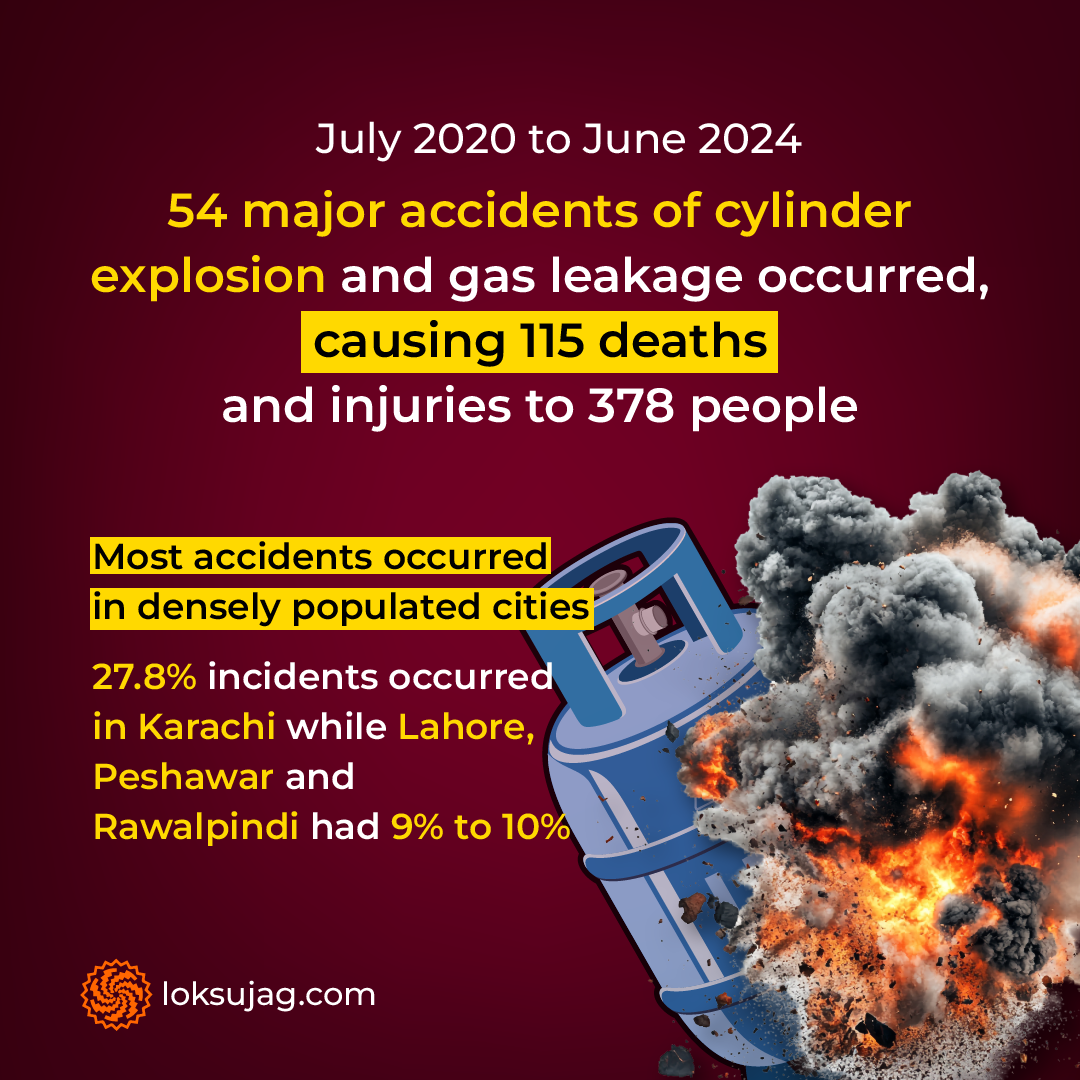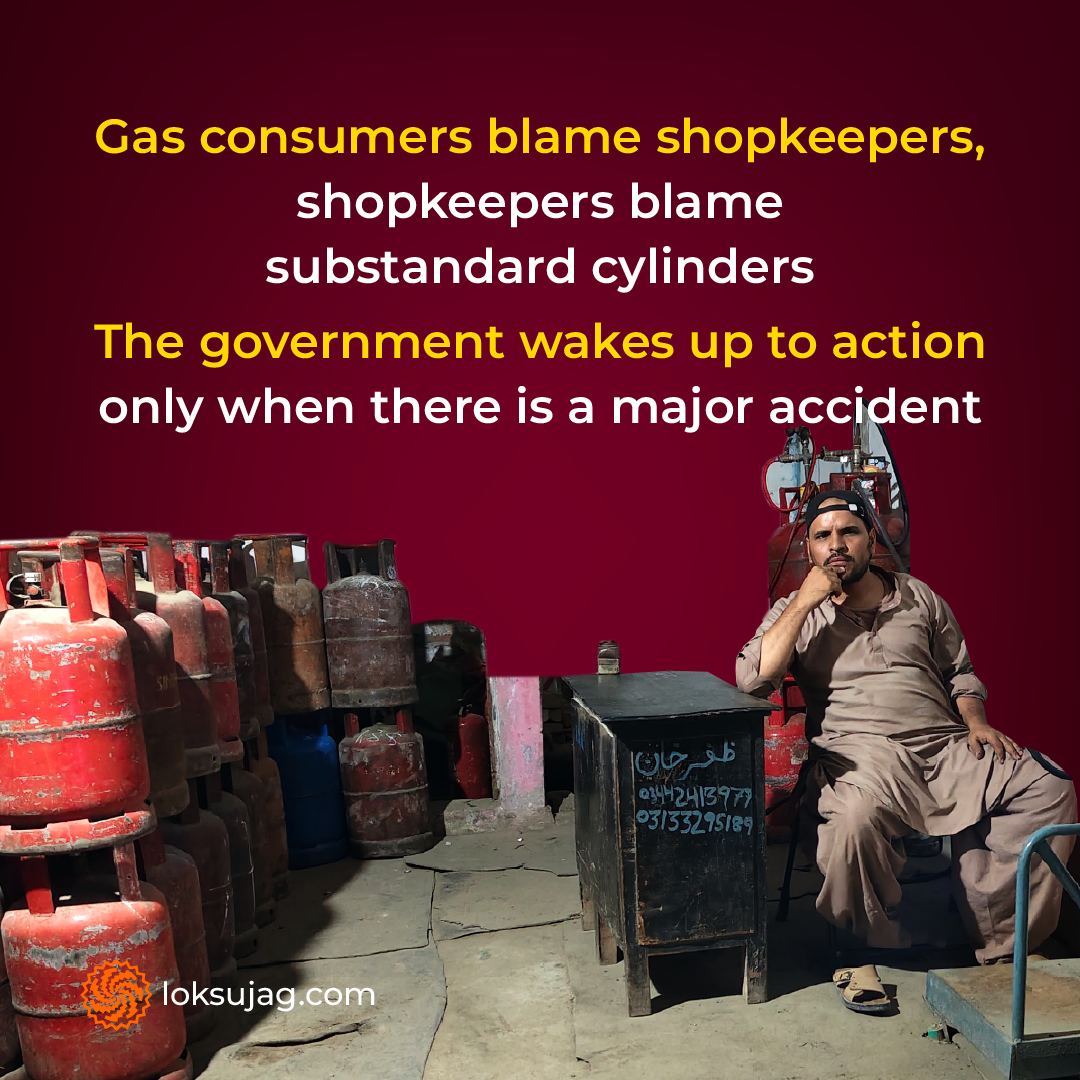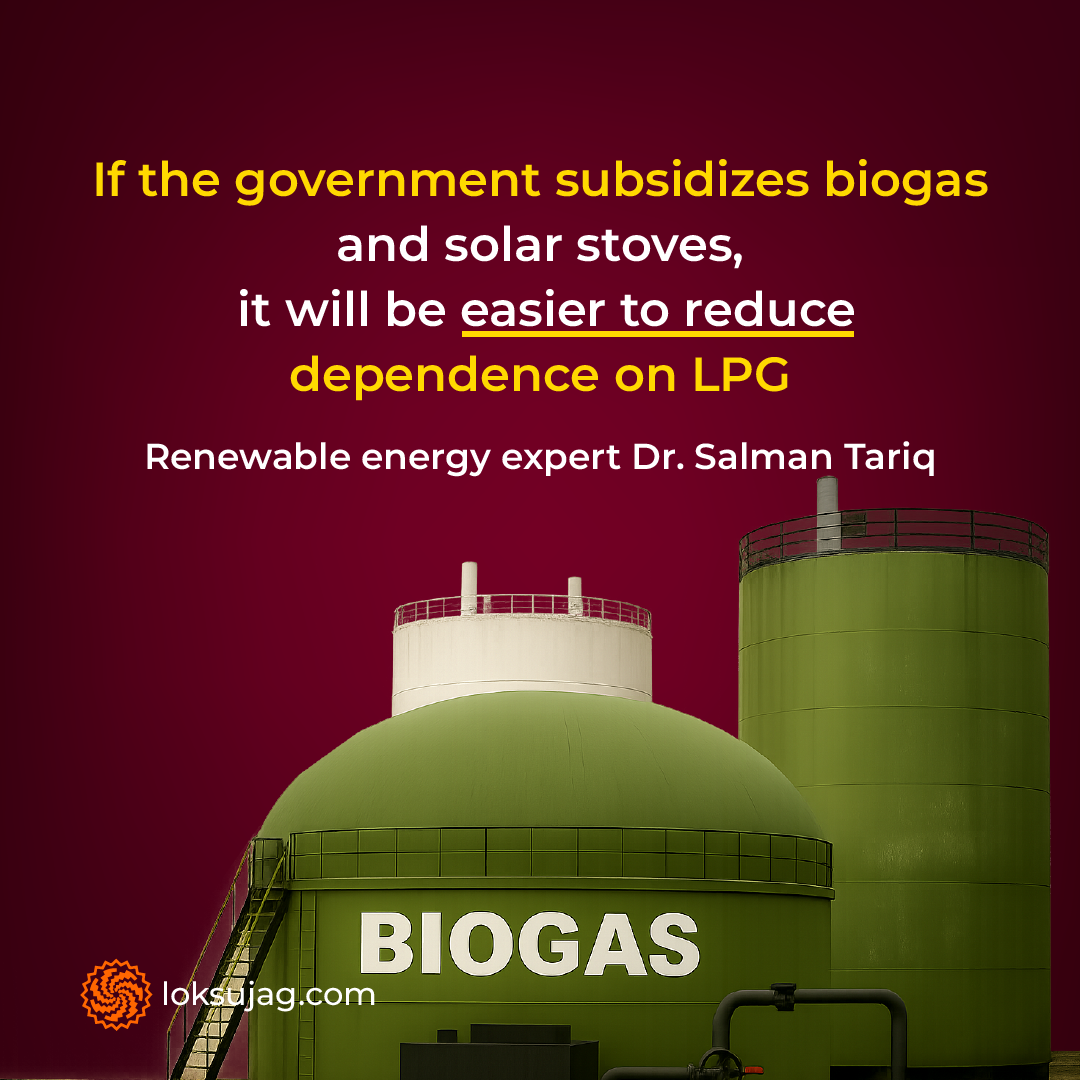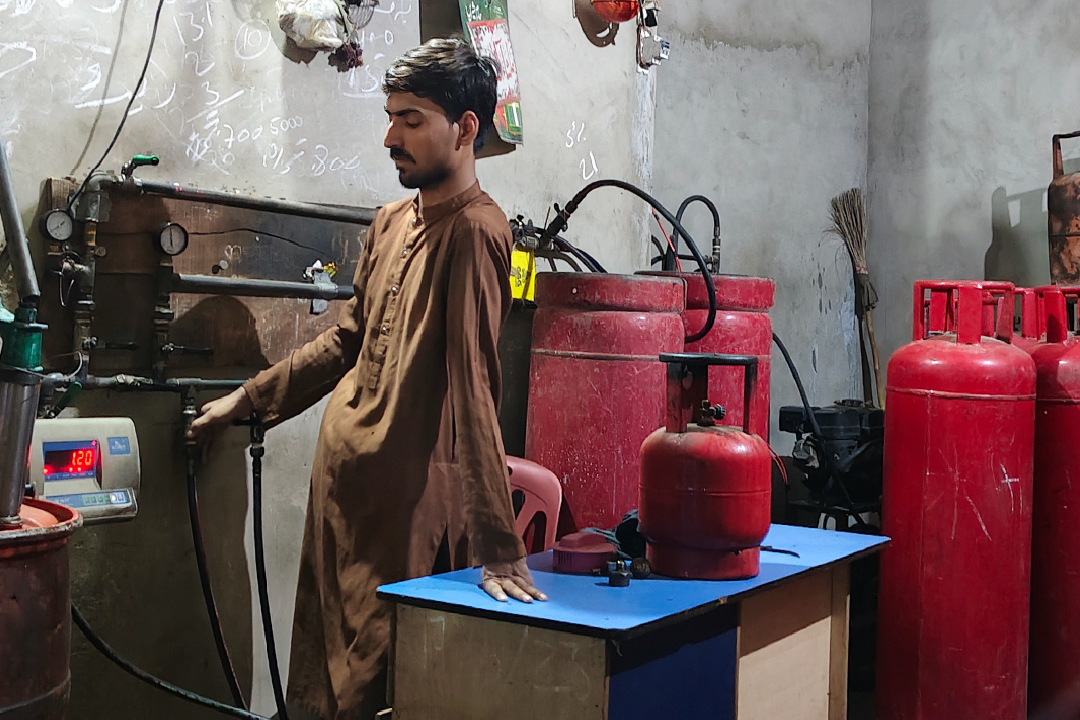As soon as Rubab Ahmed lit the stove in her kitchen to cook food, the whole place went up in flames. The gas cylinder lying in the corner exploded. She fell on the floor and her face, arms and neck were critically burnt. The accident that happened two years ago not only burned her skin but also, according to her, took away her identity and self-confidence.
Rubab Ahmed, 27, a resident of Lahore’s densely populated Samanabad area, is a mother of two children. Now she does not want to even remember the accident. “It was better to die that day than to die every day,” she laments.
This was not the first or the last accident. Dozens of incidents of cylinder explosions and gas leakages occur every year, affecting the lives of many women like Rubab.
Umar Khayyam, a resident of Dharampura, Lahore, believes that using both liquefied petroleum gas (LPG) cylinders and pipelined natural gas is equally dangerous.
“I think until we switch to renewable energy, gas leakage and cylinder explosions will continue to occur. Alternative energy sources are the best solution to this problem,” he says.

54 accidents and 115 deaths in five years
According to a report done by the researchers of the Dow University of Health Sciences, Karachi, at least 54 major accidents of domestic and commercial cylinder explosions and gas leakages have occurred in Pakistan during the five years (July 2020 to June 2024), in which 115 people lost their lives while 378 were shifted to hospitals.
The report shows that the highest number of incidents, i.e. 27.8 percent, was reported from Karachi. This is followed by Lahore, Peshawar and Rawalpindi, with the ratio between 9 percent and 10 percent. This suggests that such incidents are occurring in more densely populated areas. These incidents were only the major ones that were reported.
Media reports suggest that at least 328 minor and major gas incidents were reported in Punjab during two years (2022 and 2023), in which 17 people were killed and more than 133 were burned or injured. According to Rescue 1122, in the last one year (2014), 106 people were affected, including the death of one person, in 60 incidents in Punjab.
Two-and-a-half months ago, a three-storey building collapsed after a gas cylinder explosion on the Ravi Road in Lahore, killing six people and injuring 10. The same day, five people were killed and several others were injured in another gas leakage accident in the same area. Apart from the above-mentioned accidents in the provincial capital, 20 such incidents (excluding the Multan tanker explosion) were reported in the province till June 30 this year in which 39 people, including women, were seriously injured.
Fire safety experts say the main reason for these accidents is the use of substandard and expired cylinders, illegal decanting, poor maintenance of gas stoves, appliances and lack of safety awareness among the public.

Leaving gas and switching to green energy
The real tragedy is that both the government officials as well as business people associated with this sector unanimously blame faulty cylinders and people’s failure to take precautionary measures for these accidents. No one talks about the dangers of gas usage or switching to renewable sources of energy (solar, biogas). When asked about the dangers of using gas,
Dr Rizwan Naseer, director general of Rescue 1122, also has the same answer that safety measures are a must to avoid cylinder explosions or fires and damage due to gas leakage. Speaking about the precautions, he says, “Keep cylinders in a ventilated place, avoid substandard or refilled cylinders, and check the condition of rubber pipes regularly. If there is a suspicion of gas leakage, turn off electrical appliances, do not light fires and open windows and doors immediately.”
However, it has been observed that LPG decanting shops are established in very narrow streets which are impossible to reach for the rescuers in case of emergency.
Rescue 1122 spokesperson Muhammad Farooq says most gas decanting shops are not registered nor is their staff trained to deal with emergencies. On the other hand, people associated with the gas business hold consumers responsible who, in their opinion, buy or use defective cylinders.
Ibrahim, who has an LPG business at Pathan Colony, Gulberg, Lahore, also claims the same thing that most shopkeepers take all safety measures on their part. “Leakage mostly occurs when the consumers fill old or rusty cylinders despite our objections,” he says.

A long silence until another accident
LPG Distributors Association Chairman Irfan Khokhar also demands that the Oil and Gas Regulatory Authority (Ogra) and other relevant institutions take action against those involved in the manufacture, distribution and sale of substandard cylinders.
He says that fatal incidents are caused not only by faulty cylinders and gas leakage, but they happen during tanker transportation, which do more damage. On January 28 this year, a bowser (tanker) filled with tons of gas exploded due to fire on the Muzaffargarh Road in Hamidpur Kanora area of Multan.
The explosion was so severe that two dozen houses were affected and six people were burnt alive. In total, 10 people were killed and more than 35 people were injured.
On the other hand, Ogra spokesperson Imran Ghaznavi says that his agency has taken large-scale action against factories manufacturing cylinders, tanks and bowsers and the district administration, explosives department, civil defense and third-party inspectors also participate in such action.
Several factories and cylinder warehouses were sealed in Lahore, Sheikhupura and Karachi and the owner of a gas cylinder manufacturing unit was arrested, 14 defective bowsers and tankers were seized, while warning notices were issued to manufacturers in Karachi and Multan. Two companies were fined Rs200,000, etc. However, these actions are nothing new. Whenever a major tragedy like Multan occurs in the country, the government agencies spring into action before going into a lull, once again. Then there is a long silence until another accident.

Solar and biogas—safer and cheaper energy sources
The World Health Organisation (WHO) states that 3.2 million people die prematurely every year across the globe due to environmental pollution caused by fuels (wood, coal, kerosene, oil). Pollution caused by natural gas is considered to be responsible for 30pc of climate change, according to a report by the International Energy Agency (IEA).
Irfan Khokhar alleges that some gas companies are endangering human lives and the environment by mixing deadly ingredients like carbon dioxide in the LPG.
The Ogra spokesperson says that mixing harmful substances in gas can lead to 10 years in prison and a fine of Rs10m, and the companies have been given a strict warning to comply with the law. However, no action has been reported in this regard so far.
Renewable energy experts believe that the only sustainable and safest solution to prevent loss of human life and climate change is a transition to renewable energy.
Prof Javaria Qais of the University of Central Punjab believes that it is not possible to immediately abandon natural gas but dependence on it can be gradually reduced.
“We have a cheap and pollution-free domestic alternative like solar energy, which is safer than any fuel. We can cook comfortably during the day with solar cookers and solar ovens. Electric stoves, especially those that do not have a flame, are not without risk,” she suggests. She adds that biogas can also be used effectively in villages.
Dr Salman Tariq, a renewable energy expert, believes that if the government subsidizes the installation of biogas units and solar stoves, it will be easier to reduce dependence on the LPG and people will try to get rid of it as soon as possible.
Published on 24 Jul 2025




















